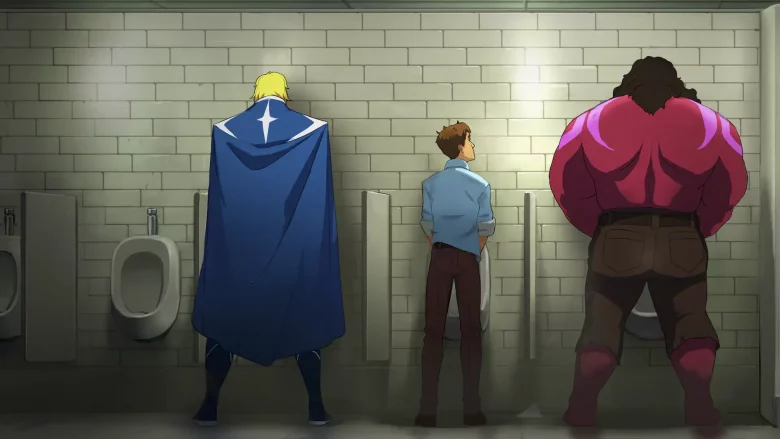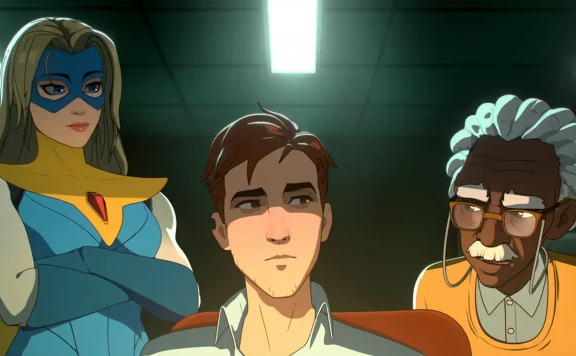Back in the day, the Telltale narrative adventure games were my jam. I love the pure focus on telling emotionally-charged stories, and the episodic format you’d usually associate with a TV show. It made every series of The Walking Dead feel like an event, something that you’d play through in one session on release day and then spend the next week chatting about with your friends. Times change though, and that combination of genre and release format has largely dried up, which is why I was so thrilled when Dispatch was announced. I’m also very excited to say that based on episodes 1 and 2, it definitely delivers on bringing that style of game into the modern day.
Like the best superhero stories, Dispatch starts with a strong protagonist. It centres on Robert Robertson, played convincingly by Aaron Paul, who’s forced to retire from his crime fighting days as Mecha Man following an attack in the field, rendering his suit useless. Instead he’s offered a role as a dispatcher for the Superhero Dispatch Network (SDN), directing a team of supes to crimes in an assigned district. Episode one hints at all sorts of themes, including an arch nemesis, daddy issues, blossoming friendships and romances, and Paul’s performance is paramount in tying them all together.
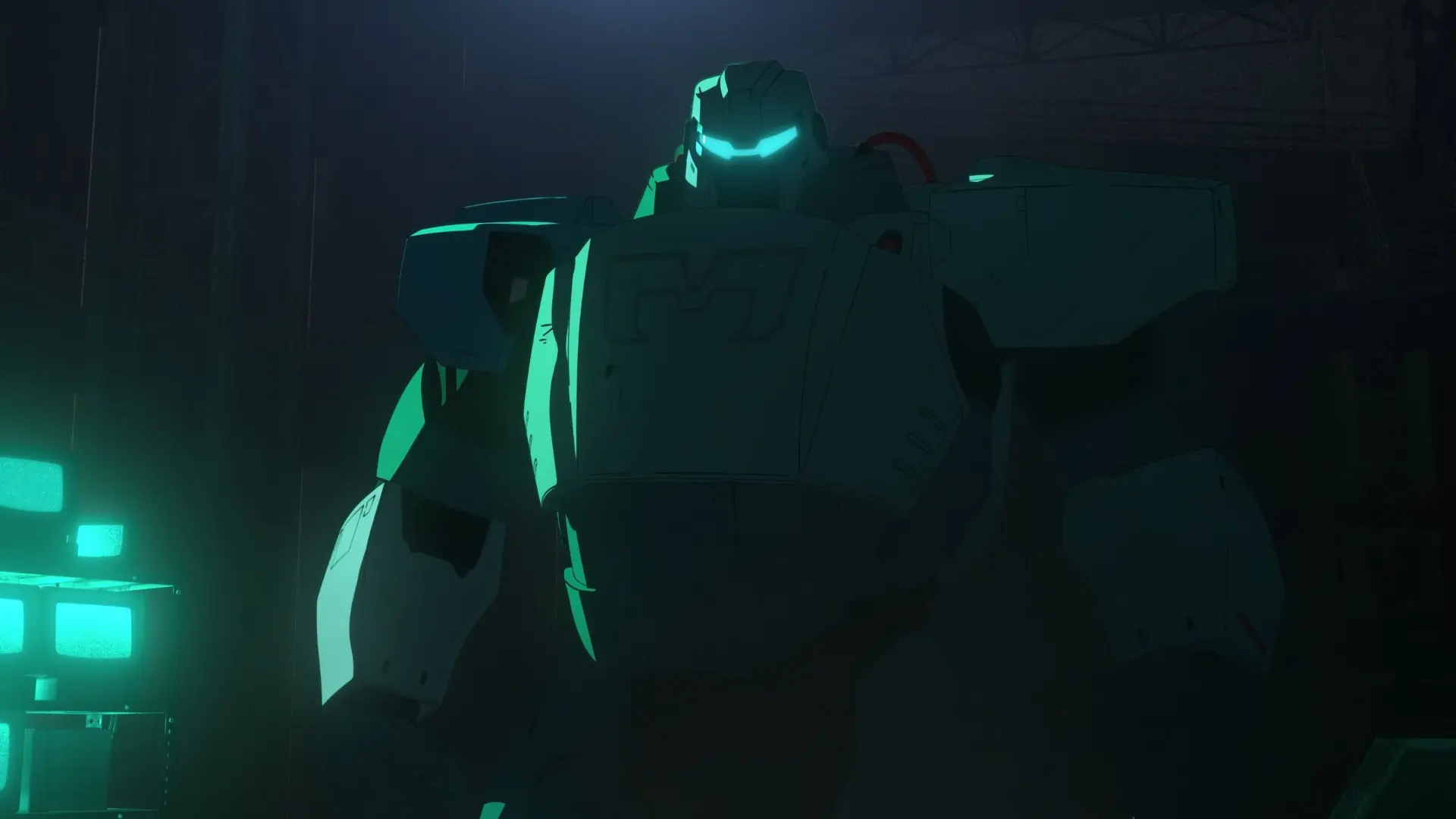
I cannot stress enough just how well it tells its story. Every performance is incredible and Aaron Paul is absolutely fantastic as Robert. The press conference he gives when announcing his retirement is so believable, you feel the weariness and dejection in his voice, and he delivers the wonderfully crafted lines to perfection. You immediately love him, even though he clearly doesn’t love himself. He’s flawed, and can be a bit of an asshole at times (if you let him) but he’s an inherently good person. One particularly sweet scene had him helping Waterboy, an anxiety-ridden hero, prepare for an interview while sitting in the SDN lobby. Robert seems annoyed at Waterboy’s incompetence, but the performance is so beautifully layered, you can hear the sympathy and kindness in his voice break through the irritation. The first two episodes were littered with these quiet, touching moments that ensure players build a relationship with Robert.
Aaron Paul’s delivery is a standout in the game but he’s supported by an excellent cast of friends and foes. There are plenty of recognisable names in here, with Jeffrey Wright’s foul-mouthed Chase being another highlight, and Laura Bailey and Erin Yvette as the rebellious Invisigal and archetypal heroine Blonde Blazer respectively. They’re all working with a script that’s pitched so well that the game will regularly have you laughing out loud one minute then waiting on tenterhooks the next as you wait to see the outcomes of your actions. The voicework is all complemented by an outstanding soundtrack, with synth-heavy tracks that elevate the most dramatic moments even further.
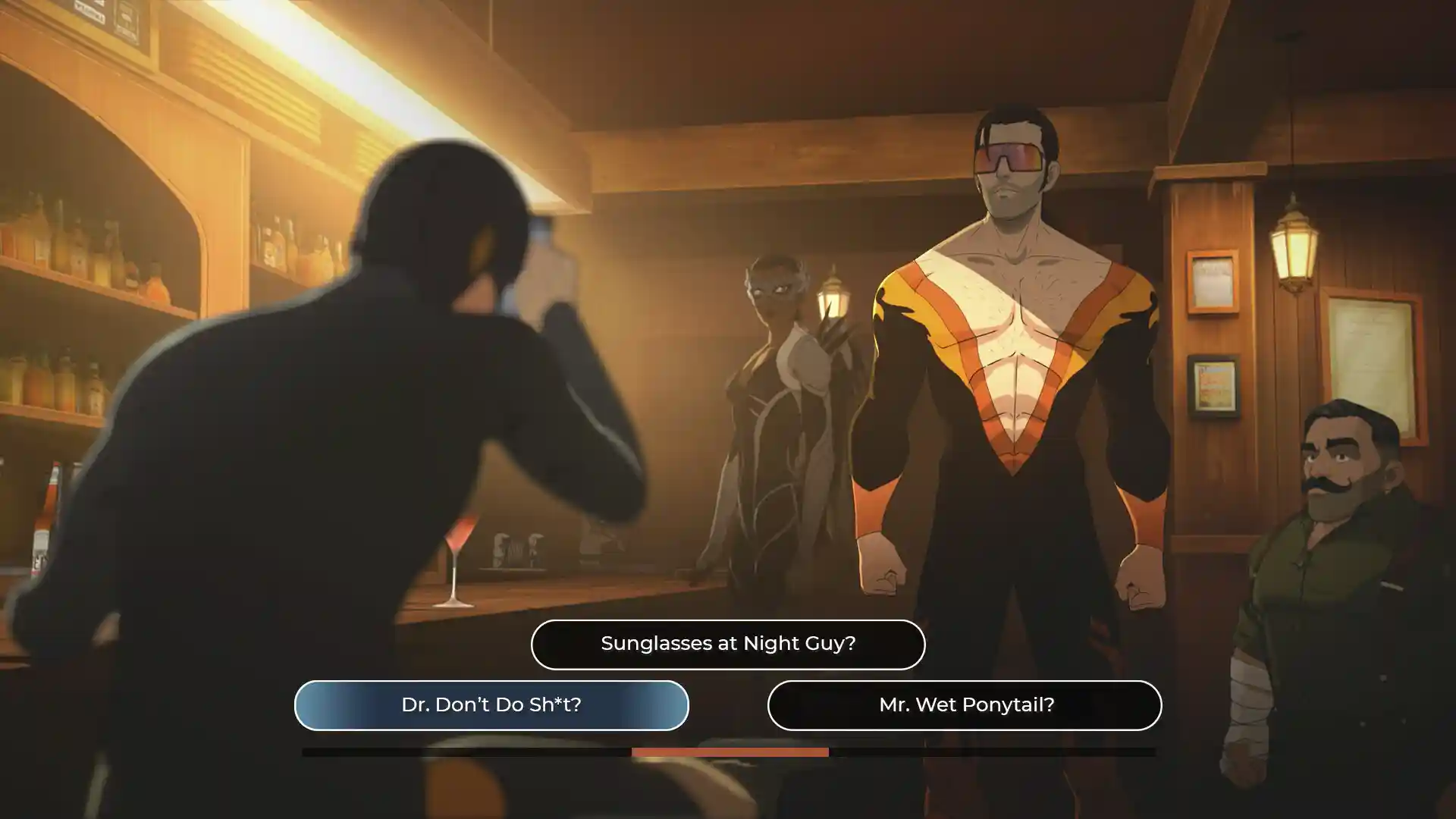
For some people, the amount of “watching” that you need to do might be a turn-off. This is a narrative adventure game so a lot of the time you’re watching cutscenes and making dialogue choices. You get the option of doing this with or without QTEs, which I kept on and while they’re nothing too stressful, they’re a fun way of involving you in the action unfolding on screen. Outside of this, you’ll also spend time at your desk on your dispatch shifts. In episode 2 you’re given control of a team of ex-villain miscreants who are trying to stay out of trouble (and earn a steady paycheque) by working as heroes.
Your job is to man the computer, check for incoming jobs and then send out the right hero, or combination of heroes, to tackle the job successfully. You’ll need to keep an eye on their stats and match those to the descriptions of the job to ensure the right heroes attend the scene. For example, you may need to send a team to investigate a crime and determine the suspects, then chase them down, so you’ll need a combination of heroes with intellect and mobility. These sections are always fun, and reward good decision making and hero management. Successful missions earn hero points which can then be used to upgrade their skills or unlock new abilities, there’s a surprising amount of depth here and it elevates these sections from being a nice diversion to being a core part of the experience.
Despite these dispatch shifts, the vast majority of the time is spent in cutscenes, so it’s a good thing that the game looks incredible. It genuinely feels like an interactive cartoon, the last time a game managed to elicit this feeling from me was South Park: The Stick of Truth, so it’s not something that many games manage to do so successfully.
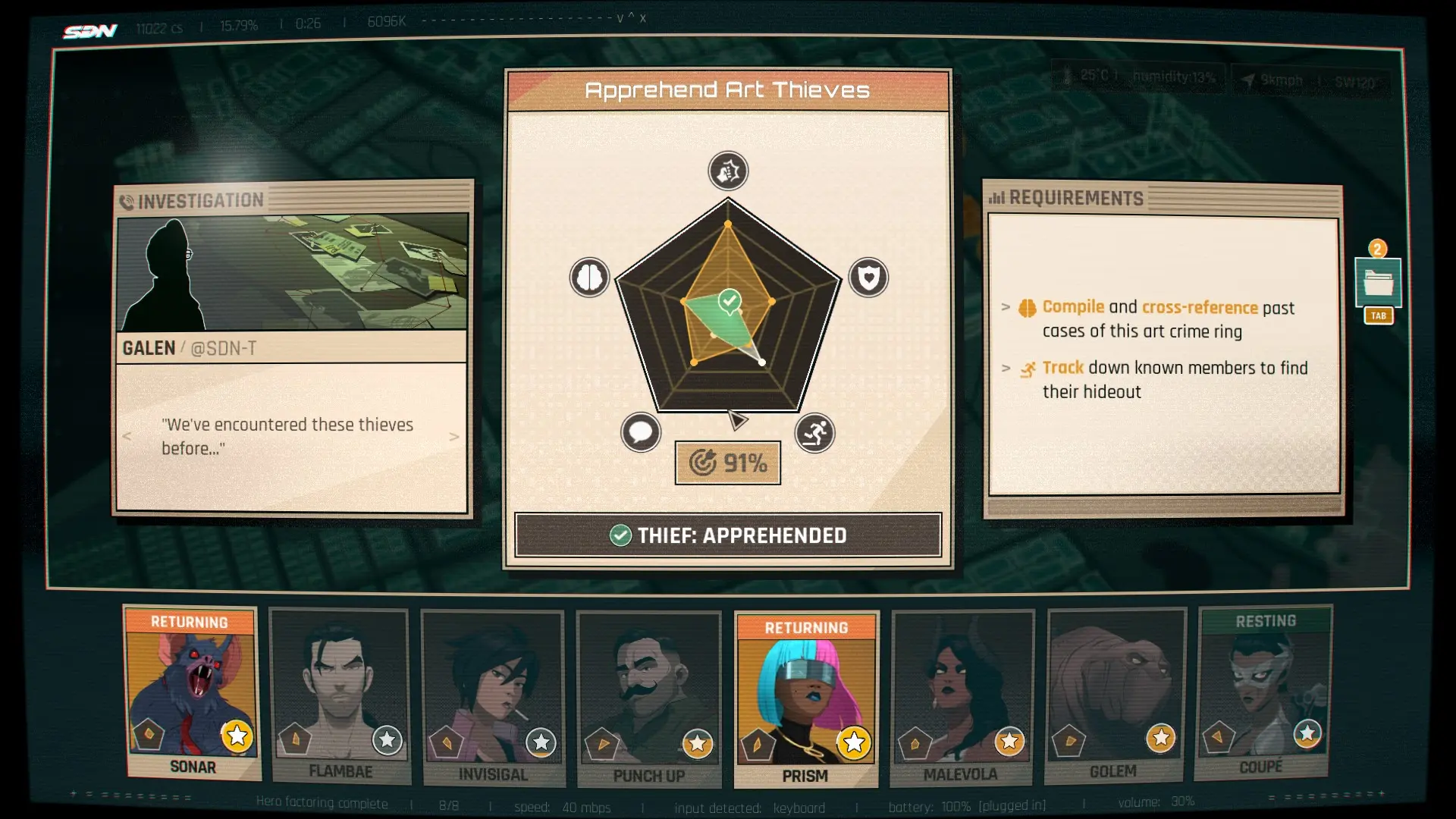
It’s so smooth, as well. To go back to Telltale’s The Walking Dead as a comparison, those games were great but limited by the technology of the time. They’d have regular hitching, or those awkward pauses between scenes. There’s none of this in Dispatch, it flows perfectly from scene to scene, with not even a stutter or pause in sight. It’s this level of quality that really blurs the line between video game and TV show, with the episodic format driving that home even further. That format is a great way to build anticipation and allows each episode to end on some sort of cliffhanger, but I’m also quite glad we’ve only got to wait a week between episodes rather than the two-month waits we used to get for The Walking Dead.
The first two episodes of Dispatch are phenomenal, but every episode is great, with Episode Five featuring one of the funniest things I’ve seen in any video game. Each member of the Z-Team is lovable in their own way, and I can’t wait to see what’s next for them.
Dispatch does a great job of mixing in humour with darker, sadder elements, although it doesn’t quite commit to some of these. When I think of the greats in this genre, such as The Walking Dead, or even something like Life is Strange, these games culminate in powerful endings that leave you feeling as thought you’ve been punched in the gut. I didn’t quite get this from Dispatch, and maybe it’s my own fault for playing Robbie as a squeaky clean hero, but I’d be interested to know how the game played out for others as I found the ending lacked a little bite. I had a few other very minor gripes: QTE’s are too distracting when overlaid over combat (although they’re used very sparingly) and the hacking minigame was never something I never really wanted more of, but for a first season, Dispatch has done a Phenomaman-al job.
Original review-in-progress published on October 21st.
